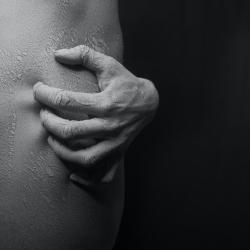Do you experience any of the following symptoms?
- Flushing, itching, swelling, hives
- Runny or blocked nose, asthma
- Irregular heartbeat, hypotension
- Abdominal pain, nausea, diarrhoea, bloating
- Headache
- Increased anxiety
It could be histamine intolerance. Most people with HIT do not experience all of these symptoms, just some. Symptoms can appear in flares or be continual and in all cases, the higher the histamine intake across a period of time, the worse symptoms will be. Histamine can accumulate, so a high intake over a few days can result in symptoms that are much worse than if this same level was spread out over a few weeks.
What are Histamines? Histamines are produced naturally by the body as part of an inflammatory response to fight off infection. They also occur naturally in some foods. Most of us manage histamines well in the diet, however when we have too much from food in relation to the level of diamine oxidase (DAO), the enzyme which breaks histamines down, problems and symptoms arise.
What causes a Histamine intolerance? Causes vary from person to person, although most are developed, rather than being something you are born with.
Post COVID Histamine intolerance Some people develop histamine intolerance after contracting COVID. This is thought to be due to something called mast cell activation syndrome (MCAS). Mast cells are designed to release histamine in response to infection, however in MCAS, they continue to release higher levels of histamine, even once you have recovered.
Peri-menopausal Histamine intolerance The peri-menopausal period can be problematic for some women as rising estrogen levels result in a release of more histamine, meaning you are able to tolerate less from the diet as your bodies levels are already slightly raised. During the peri-menopause, estrogen levels can become raised and erratic, increasing histamine levels within the body. This can be particularly difficult to navigate as there may be periods of time where you tolerate more high histamine foods (due to lower estrogen) and periods where you tolerate less high histamine foods.
Estrogen levels also naturally peak when your periods first start and at the time of ovulation each month.
How is it diagnosed Diagnosis is difficult and usually on the basis of ruling out other causes for symptoms, as well as trying a low histamine diet, in some cases with medications such as DAO supplements or antihistamines. If there is improvement in symptoms with these medications and dietary changes, an intolerance to histamines can be assumed.
A low histamine diet can be restrictive and should not be followed in the long-term. If the exclusion phase is successful, it should be followed by a ‘challenge’ phase of histamines. There is usually a threshold of histamines which are tolerated, working with a specialist dietitian can be useful to help you find yours.
Which foods are high in Histamine? A difficulty with histamine intolerance, is that it can change based on how food is prepared or how old it is. For example, freshly caught white fish is low histamine, but as it ages, it’s histamine levels rise.
As a general rule of thumb, the more mature or fermented the food, the higher it’s histamine content.
High histamine foods to avoid for 4 weeks:
- Avocado, aubergines, tomatoes, spinach, mushroom, rocket and all pickled, canned or aged veg.
- All overripe fruit, strawberries, raspberries, grapes and citrus fruits.
- All beans, pulses, legumes.
- Most nuts, in particular walnuts, cashew nuts and peanuts.
- Buckwheat, barley, wheat.
- All alcohol, water, English breakfast tea, coffee.
- Hot spices, chocolate, artificial sweeteners and food additives.
Suitable alternatives to include:
- All fresh fruit and veggies not listed above.
- Brazil nuts, macadamia nuts.
- Sweet potatoes, potatoes, rice, quinoa.
- Peppermint tea, water, chamomile tea, rooibos tea.
- Fresh & dried herbs, all oils, honey.
Non-dietary factors: Histamines in your body are not only affected by diet but also stress (increased stress results in an increased histamine release) and in some cases the environment.
What should I do if I am experiencing any of these symptoms? A specialist dietitian and/or doctor can help you work through histamine intolerance. If you are experiencing any of the above symptoms, our dietician can help you with dietary changes and advise if further testing or medical input if needed.
Our Barnes Clinic
Our clinic is located in Barnes, South-West London and is easily accessible by public transport.
For more information including parking and other practicalities see our Barnes clinic page
Book an Appointment
Booking an appointment with one of our therapists is quick and easy. There is no long waiting time and you don’t need a referral from your GP.

